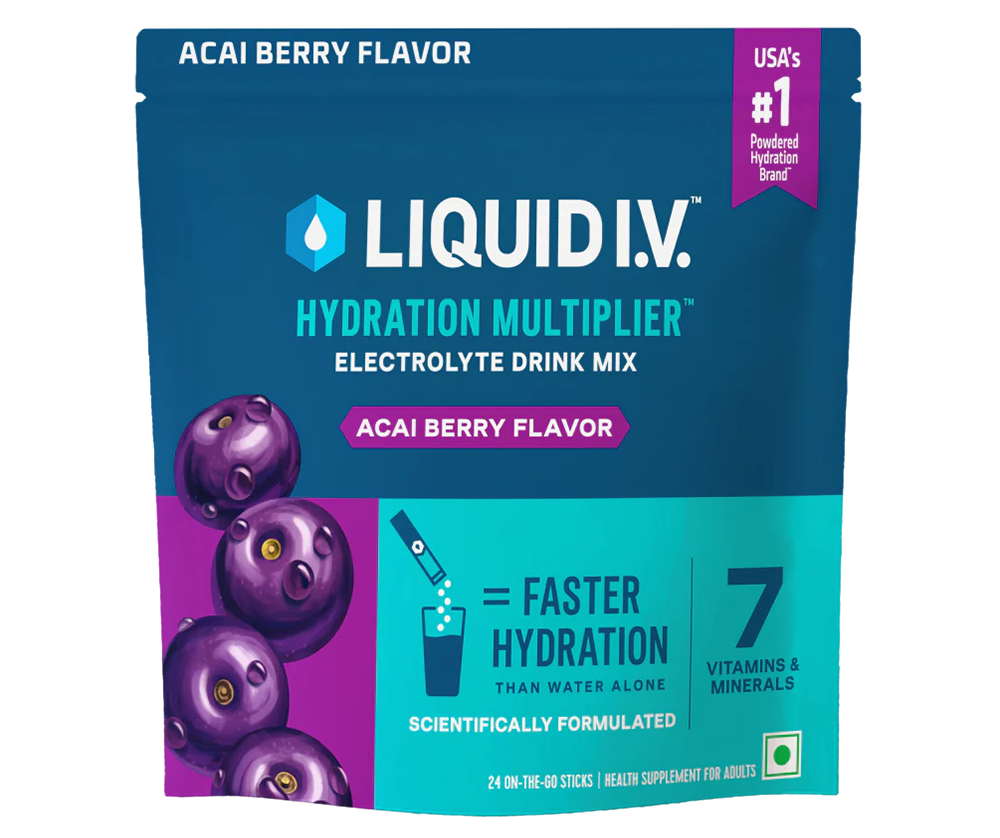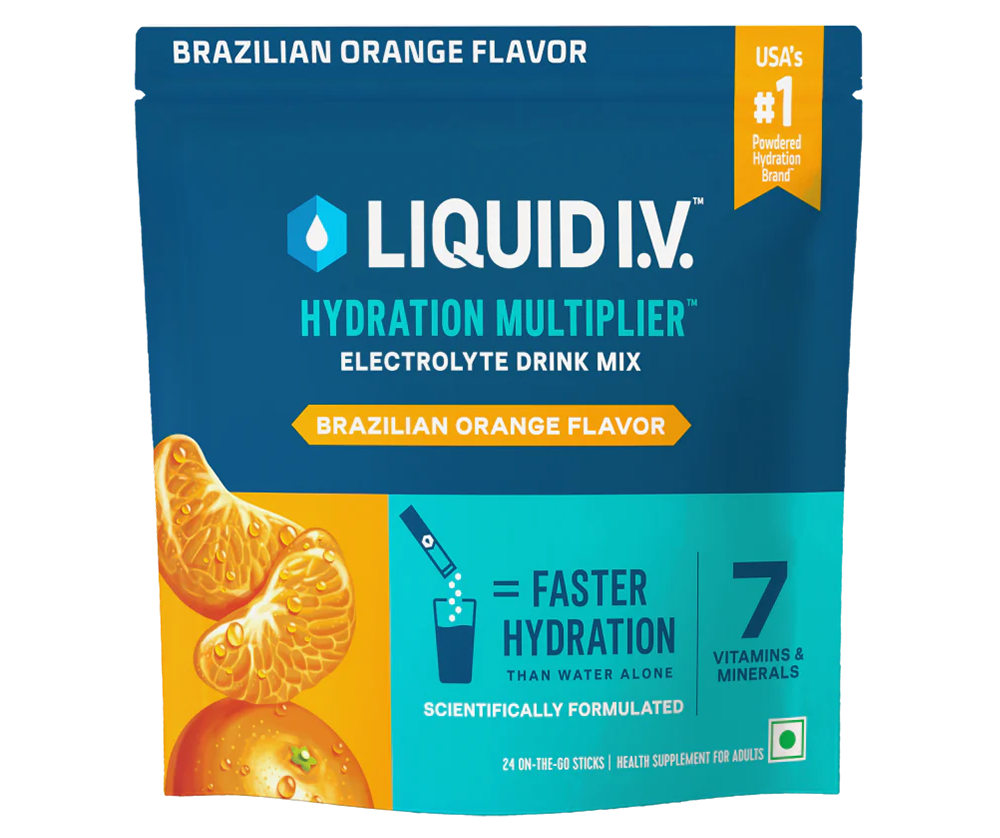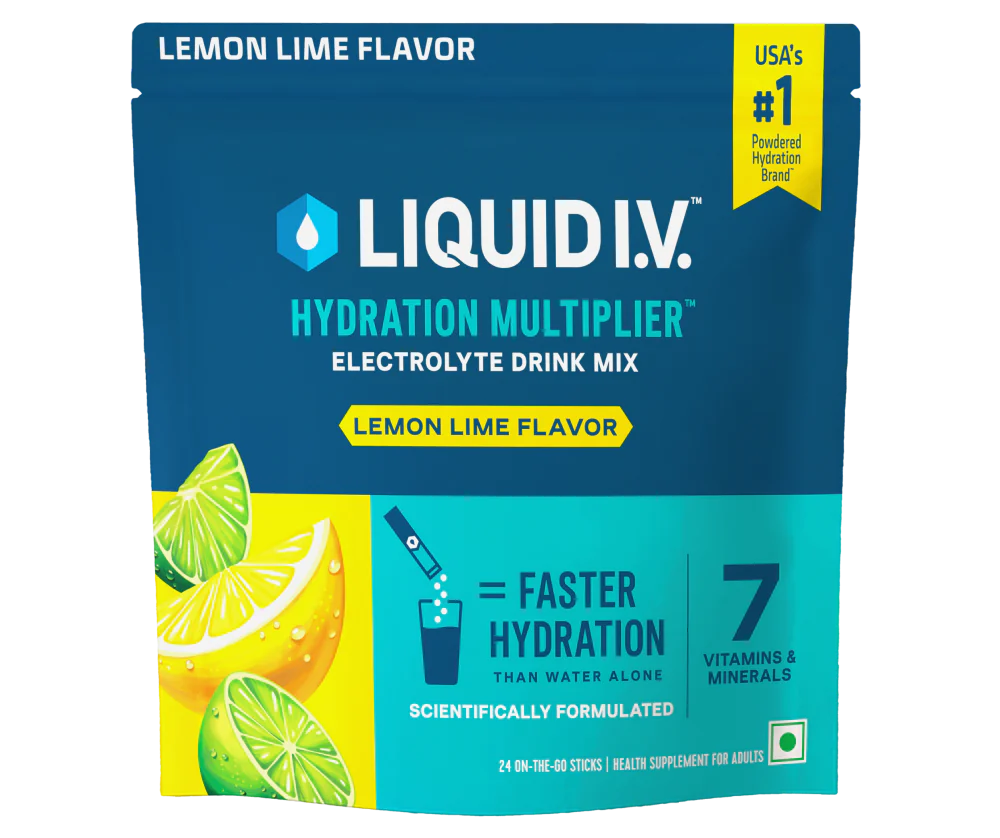What Are Electrolytes? Importance, Functions, and Sources
Ready to get your healthy habits in order? Let’s check your list:
- Wake up early? Check.
- More protein in each meal? Check.
- Drink at least 2 litres of water every day? Check.
- Include electrolytes in your hydration routine? Check- Wait, what? Why?
Water makes up a major part of every cell in your body. It’s the medium where reactions and other complex processes occur seamlessly. However, for these reactions to take place and for overall fluid balance to be maintained inside the body, some tiny yet powerful things called electrolytes are required! So, what are electrolytes?
What are electrolytes?
Electrolytes are ions or charged chemical species obtained from minerals, like sodium, potassium, magnesium, etc. They play a big role in maintaining the level of water both inside and outside your cells [1]. Electrolytes are present in our body and are replenished as we consume salts as part of our nutrition. And not just the common salt (Sodium Chloride – NaCl) that we add to almost everything, we get electrolytes from various food and fluid sources too, like bananas for potassium, milk for calcium, and avocados for magnesium [2].
Why are Electrolytes Important?
The Water GPS
Electrolytes have many functions in the body, but the most important is that they maintain fluid balance. Your body is made up of 60% water, but all this water is not just randomly swooshing around inside your body! Your body’s water lies in two major pools: 65% is inside your cells and is called Intracellular Fluid (ICF), and the rest 35% is outside and is called Extracellular Fluid (ECF). Your ECF is sodium and chloride heavy, while your ICF is loaded with potassium and phosphates [1].
Under normal conditions, these water and electrolytes inside and outside the cells are precisely balanced, and everything is hunky-dory. But when you lose fluid, say by sweating, you lose water and electrolytes, mostly from your ECF. With less fluid outside, ECF becomes more concentrated—and suddenly, osmosis kicks in. Osmosis is a process where water moves from areas of low to high solute (in this case electrolytes) concentration. Due to osmosis, water rushes out of your cells to try and restore balance.
Without electrolytes, this whole system would have a meltdown because water wouldn’t know where to go! So, though water has the main character energy, electrolytes are its allies giving it direction.
Meet the Electrolytes!

Sodium
Sodium is almost like a superhero in your body. It helps keep the right amount of water in your cells and makes sure your nerves and muscles work properly. Sodium moves in and out of cells with its buddy, potassium. Your kidneys help control how much sodium you have. If you have too little sodium, you might feel confused, have headaches, or even feel nauseous. Your body’s hydration levels might be off! Dehydration, nutritional deficiencies, and even chronic alcohol misuse can mess up your sodium balance – so watch out [3].
Potassium
Potassium is another important superhero, but it mostly hangs out inside your cells. It works with sodium to keep your fluid system balanced. Your kidneys help manage potassium levels too. If you don't have enough potassium (hypokalaemia), you might feel weak, tired, and your muscles might twitch! [3].
Chloride
Chloride is like sodium's sidekick. It helps keep the right balance of fluids in your body. Your kidneys help control chloride levels. If you lose too much chloride due to dehydration or vomiting, or if you have suddenly too much water – the electrolyte concentration gets disturbed! [3].
Phosphorus
Phosphorus is important for strong bones and teeth. 85% of the phosphorus in your body is in your bones, and the rest 15% is in your soft tissues, like tendons, muscles, and ligaments. Phosphate is super important for your body’s metabolism. It helps build ATP, which is like your body's battery. Hormones (e.g., PTH & calcitonin) and vitamins (Vitamin D3) help control phosphate levels in the body along with calcium. Your kidneys help get rid of extra phosphate. [3]
Calcium
Calcium is super important for your body. It helps build strong bones and teeth, makes your muscles move, helps your nerves send messages, helps your blood clot, and helps your body make hormones. You get calcium mostly from the food you eat. Vitamin D helps your body absorb calcium from your food. Your kidneys also help control how much calcium is in your blood. [3]
Bicarbonate
Bicarbonate helps keep the pH levels in your body balanced. Your kidneys help manage bicarbonate levels. If you lose too much bicarbonate, like when you have diarrhoea, it can make your body too acidic. [3]
Dietary Sources of Electrolytes:
- Table salt acts as the major source of both sodium ions and chloride ions. Especially for chloride ions, salt acts as the vital source [4].
- Potassium is obtained from unprocessed food like fruits and vegetables. People who consume meat also tend to get a good amount of potassium into their system [4].
- Milk and dairy products act as the primary source of calcium, with close to 50% of daily intake being supported by just dairy [5].
- Another method of rapidly adding electrolytes would be to empty a stick of electrolyte mix, like Liquid I.V.™ in 500 ml of your water once a day.
Conclusion
Electrolytes are the unsung heroes of our everyday well-being. They are essential for keeping your body balanced and functioning properly. They help maintain fluid levels, support muscle function, regulate pH levels, and ensure your nerves can send signals effectively. Including electrolytes in your hydration routine is just as important as drinking water and eating a balanced diet. By understanding the roles of various electrolytes, you can make sure your body stays healthy and strong. So, as you work on your healthy habit checklist, don't forget to add electrolytes to your list for a well-rounded approach to health and wellness! Including fresh fruits, natural drinks like tender coconut, or simply adding an electrolyte drink are easy ways to replenish electrolytes lost from the body.





